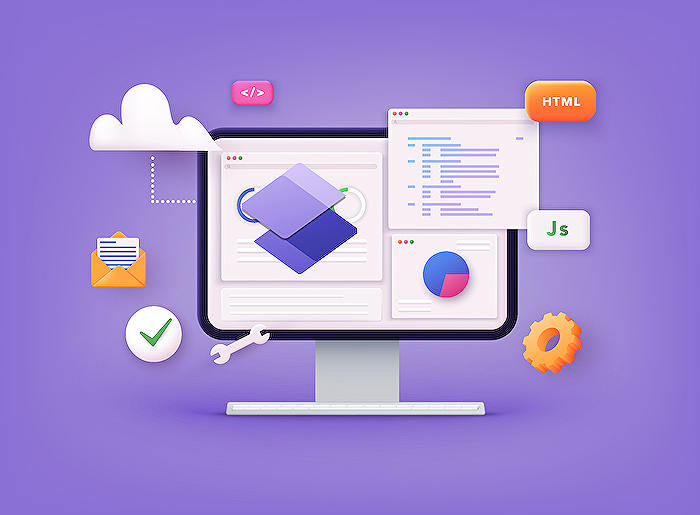- All of Microsoft
Power Pages and their use cases
Unlock Web Innovation: Discover Power Pages for Portals, E-Commerce, Healthcare, Education & More!
Microsoft Power Pages is a valuable tool designed to create modern websites with minimal coding, perfect for data-centric web experiences. It's part of the broader Power Platform. This platform helps users easily build robust, professional websites that can serve various purposes within a business or organization.

When determining the appropriate scenarios for utilizing Microsoft Power Pages, it's crucial to understand its function in the tech sphere. Microsoft's Power Pages service is a component of the expansive Power Platform. It is intended to facilitate the development and management of websites with a focus on data, requiring only minimal programming skills.
Key Applications for Power Pages
For business operations, Power Pages offers a range of applications: These pertain to both internal and external web portals and various interactive platforms.
- Internal Business Portals: Firms establish intranet sites through Power Pages to offer employees access to corporate resources, news, and HR processes.
- Customer Self-Service Portals: Companies create user-interactive portals for customers to oversee their accounts, track orders, seek support, and engage with the company.
- Community Engagement: Power Pages also aids in crafting forums or feedback platforms for user and company interaction, idea exchanges, and problem-solving.
- Event coordination and academic platforms likewise benefit from Power Pages: It streamlines event information dissemination, registration processes, and interactive educational experiences.
- Event Management: Power Pages assists with event-related websites for attendee information, registration, and communication with organizers.
- Educational Platforms: Institutions use Power Pages for learning management systems, student portals, or online course platforms.
Other pivotal sectors such as government and healthcare also utilize Power Pages for improving public and patient services: This includes service application portals and patient health management systems.
- E-Government Services: Government entities build public service websites with Power Pages for information access, service applications, and online transactions.
- Healthcare Patient Portals: Healthcare providers offer patient portals via Power Pages for health record access, appointment scheduling, and provider communication
What are Microsoft Power Pages?
The functionality of tools similar to Power Pages extends beyond mere website creation; it encompasses facilitating robust and interactive user experiences. These platforms emphasize data-centric designs, enabling organizations to streamline their operations with efficient digital tools. They provide a user-friendly environment where coding knowledge is a bonus, not a requirement, bringing complex website and portal development into the realm of less technical users.
With their capability to seamlessly integrate with a broader ecosystem, such as Microsoft's Power Platform, they can enrich website functionality dramatically. Analytical insights from tools like Power BI, workflow automation through Power Automate, and app creation with Power Apps work in harmony to create a comprehensive online presence. This harmonious integration ensures a high degree of customization, making it simple for businesses to address their unique online needs.
Whether for internal management, customer interaction, community engagement, event planning, education, government services, healthcare management, or online retail, these platforms offer tailored solutions. Such flexibility demonstrates the product's ability to adapt to various industries and sectors, confirming its position as a versatile and essential tool in the digital landscape
The use cases for this tool are vast, ranging from internal business portals to e-government services. Internal business portals, for example, are intranet sites providing access to company resources and HR processes. Customer self-service portals allow customers to manage their accounts and interact with businesses seamlessly.
Educational institutions can leverage Power Pages for student portals and online courses, providing a structured digital learning environment. Government agencies can publicize services and transactions, enhancing citizen engagement. In healthcare, patient portals built with Power Pages streamline appointment scheduling and records access.
Furthermore, Power Pages is also an ideal solution for e-commerce platforms, connecting product catalogs and ordering systems to create a holistic online shopping experience. One key advantage of using this tool is its easy integration with Microsoft's ecosystem and other elements of the Power Platform, such as Power BI, Power Automate, and Power Apps.

People also ask about Power Pages?
What are the use cases for power pages?
Power Pages are used to create data-driven, external-facing websites that can interact with Microsoft Dataverse, allowing organizations to publish and manage content, forms, and business data online. Common use cases include customer self-service portals, external business process forms, event registration sites, community engagement platforms, and more. Power Pages enable businesses to extend their operations to external stakeholders seamlessly and securely.
What are power pages used for?
Power Pages serve as a versatile tool for building secure websites that need to display and collect data from external users. They can be used for engaging customers, partners, and communities by providing interactive and dynamic web experiences integrated with back-end systems to automate workflows, gather feedback, conduct surveys, and facilitate transactions or services.
What is the purpose of power page?
The primary purpose of Power Pages is to allow businesses to create tailor-made websites that leverage the capabilities of the Microsoft cloud, integrating closely with Microsoft 365 tools and services. They empower organizations to accomplish tasks such as data visualization from Dataverse, secure information exchange, and facilitating data entry from external users without extensive coding expertise required.
What are the use cases for PowerApps?
PowerApps is used to develop custom business applications without the need for traditional application development skills. Its use cases span from simple task automation to complex business process management. Typical scenarios include mobile apps for field service, custom process management tools, automation of repetitive tasks, rapid prototyping of new applications, and creating apps that connect to and extend the functionality of Microsoft 365 and other business systems.
Keywords
Power Pages Use Cases, Power Pages Microsoft, Web Development Platform SEO, Power Platform Website Creation, Business Process Integration Websites, Low-code Power Pages Solutions, Microsoft Dynamics Power Pages, Power Pages Custom Websites, Power Pages Website Design, Power Pages Business Websites
